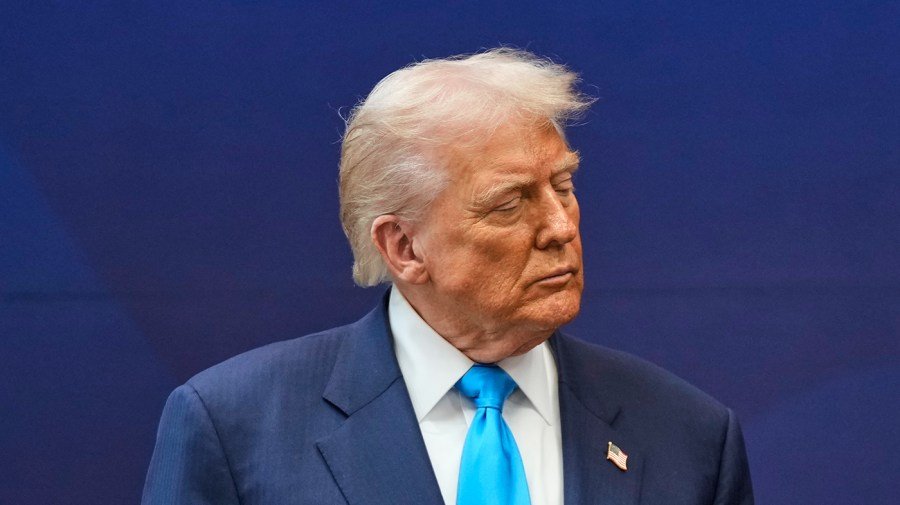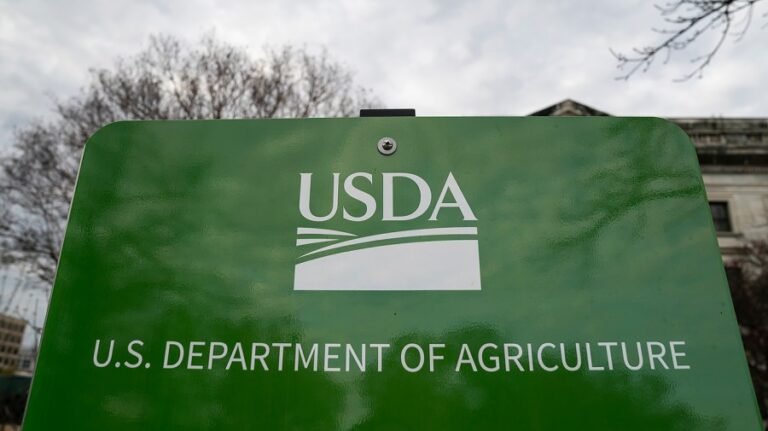
In a long-awaited report about last year’s pre-election polls, the country’s largest survey research organization proclaimed “a substantial recovery in overall polling accuracy” from 2020 and declared that “most 2024 public polling was notably accurate.”
President Trump won in last year’s presidential election by 1.5 percentage points over Democrat Kamala Harris, the tightest popular vote margin since 2000. With a few striking exceptions, pre-election polls last year mostly signaled a close race between the two party front-runners. “Coming on the heels of larger-than-typical errors in 2016 and 2020, and in the face of considerable skepticism of surveys’ accuracy, 2024 was a good year for public polling,” the report asserted.
But a closer look at the report, released Wednesday by the American Association for Public Opinion Research, finds somewhat less cause for applause — as well as grounds for some head-scratching uncertainty.
For the third successive presidential election, the polls of 2024 collectively underestimated popular support for Trump, an outcome that the report characterized as indicative of “lingering challenges” for pollsters in identifying and interviewing Trump’s followers. This tilt has persisted even though many pollsters adjusted their survey methodologies and techniques following their misses in presidential elections of 2016 and 2020.
Data presented in the report also showed that pollsters overall have underestimated support for Republican candidates in four of the past six presidential elections — the three in which Trump led the ticket and in 2004, when President George W. Bush won reelection.
The report mentioned, in passing, that 60 percent of 81 national polls conducted during the closing two weeks of last year’s campaign indicated that Harris was leading Trump. The report did not discuss that finding in detail. It is a notable point, however, given that Harris campaign officials said after the election that none of their private, internal polls showed her ahead.
Prepared by a 16-member committee of pollsters, academics and journalists, the report drew upon pre-election polls that had been released publicly, noting: “Many internal or proprietary polls—especially those commissioned by campaigns—never appeared in public.” Ironically for a study that tapped “public polling,” the report avoided referring by name to individual pollsters and how they fared in 2024.
For example, the report includes only one, oblique reference to the campaign’s single most stunning polling error — that of the usually accurate Iowa poll. Three days before the election, the poll reported Harris had opened a 3-point lead in the Hawkeye State, which Trump had carried twice before. The results suggested that, assuming the Iowa poll was accurate, then Harris’s chances of winning the presidency were enhanced.
The Iowa poll was off by 16 points — Trump won Iowa by 13 points.
The report’s preference for anonymity meant that some discussions of polling performance were worded vaguely. Without providing specific details, it said polling organizations “with the longest track records did not notch the best performance. Instead, the lowest errors came from firms that were newer, but were not tracking their first cycle.” This may have been a reference to AtlasIntel, a Brazilian pollster. AtlasIntel estimated that Trump would narrowly win the national popular vote and carry all seven swing states where the election turned. No other pollster scored as well.
The name “AtlasIntel” does not appear in the report, and the chair of the task force that prepared the report — Josh Pasek of the University of Michigan — said the committee preferred to focus on overall polling performance rather than the work of discrete firms and their surveys.
As such, the less-than-stellar performances of prominent, media-sponsored polls such as those of CNN and The New York Times were not addressed in the report. The task force included representatives from both media outlets.
CNN’s final polls said Harris led in four of the seven swing states, that Trump was ahead in two, and that the candidates were tied in one swing state. Had CNN’s swing-state polls accurately anticipated the election outcome, Harris would have won a majority in the electoral college and, in turn, the presidency.
CNN’s polls, which are conducted by a Pennsylvania firm, estimated that Harris led by 6 percentage points in Wisconsin and by 5 points in Michigan — results that were in error by almost 7 and 6.5 points in those respective swing states.
The final pre-election polls conducted by The New York Times-Siena College partnership estimated that Harris led in four swing states, that Trump was ahead in one, and that the candidates were tied in two others. The Times/Siena polling in the swing states, said Tom Bevan, a co-founder of the popular RealClearPolitics news and polling data website, was “atrocious.”
W. Joseph Campbell is a professor emeritus of communication at American University in Washington, D.C. He is the author of seven books including, most recently, “Lost in a Gallup: Polling Failure in U.S. Presidential Elections.”

